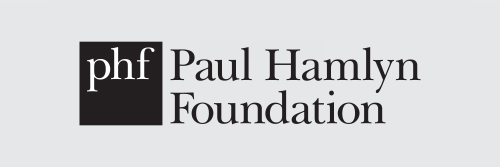Stephanie Wynne and Stephen McCoy — Triangulation
18 July - 24 August 2019
POP-UP EXHIBITION: VICTORIA GALLERY & MUSEUM, UNIVERSITY OF LIVERPOOL
This work is from the ongoing project to visit all 310 primary triangulation points that were built and measured between 1936 and 1962 by the Ordnance Survey for the ‘Retriangulation of Great Britain’. The work will provide a comprehensive survey of the British landscape, dealing with how we represent territory and the layering of history, land use, ownership and boundaries.
Many people mistakenly think the function of the triangulation (trig) point is to mark the highest point of hills, but the trig points are placed in positions where at least two other points can be seen in order to form triangles for accurate measurement.
The panorama is produced by placing the camera and tripod on top of the trig point and taking one exposure every 30 degrees, twelve exposures to cover the full 360 degrees. The panorama seemed the most valid response to the visual experience of reaching the trig point – most people will turn to look at the view all around. The panoramas are presented alongside photos of the pillars, and the methodical approach to producing the photographs alludes to the systematic nature of survey and mapping.
Collaborators:
Les Roberts
CAVA Associate
BA (London) PhD (Middlesex)
Les Roberts lectures in the Department of Communication and Media at the University of Liverpool. His research interests and practice fall within the areas of spatial anthropology, urban cultural studies, cultural memory, and spatial humanities. With a background in anthropology and cultural studies his work explores the intersection between space, place, mobility, and memory with a particular focus on film and popular music cultures. He has worked as a researcher across the School of the Arts on the multi-disciplinary projects ‘City in Film: Liverpool’s Urban Landscape and the Moving Image’ (2006-8), ‘Mapping the City in Film: a Geo-Historical Analysis’ (2008-10), and ‘Popular Music Heritage, Cultural Memory and Cultural Identity’ (POPID) (2010-12). He has published numerous peer reviewed journal articles and book chapters and is the author, editor or co-editor of 7 books, including Mapping Cultures: Place, Practice and Performance (2015), Locating the Moving Image: New Approaches to Film and Place (2014), and Film, Mobility and Urban Space: a Cinematic Geography of Liverpool (2012). He is currently working on developing a number of on-going projects, including research into location filming and heritage tourism, and a collaborative European project on the spatial anthropology of wetlands.
Marco Iuliano
Research Director, CAVA
Laurea cum laude, MPhil, PhD (University of Naples ‘Federico II’)
Marco Iuliano is an Italian architetto specialising in History and Theory of Architecture. He has taught in Italy, France, United Kingdom and has been invited to present papers in several countries. He is the recipient of different grants and has held fellowships at the British Library, the Centre for Architecture Andrea Palladio and the Italian Ministry of University. In 2005 he was also awarded an Italian National Council of Researches (CNR) Postdoc. Between 2005 and 2008 he has been the PI of the Digital Archive funded by the Compagnia di San Paolo for the Archivio Fotografico Parisio, one of the largest Italian architectural image archives. He is correspondent for the UK of ‘Il Giornale dell’Architettura’ (Allemandi), has published numerous peer-reviewed articles and is co-author and co-editor of six books: in 2009 one of these has been selected as book of the Year in the Times Literary Supplement. Before joining LSA, from 2009 to 2012, Marco has taught at Cambridge University, Faculty of Architecture and History of Art. In the department of Architecture at Cambridge he has been the PI of the ‘Interactive Vision between Architecture and Photography’, a research project funded by the European Commission under the 7th Framework Program and the organiser of two centenary events for the Department of Architecture (1912-2012): the exhibition Cambridge in Concrete. Images from the RIBA British Architectural Library Photographs Collection and of the international conference ‘Still Architecture: Photography, Vision, Cultural Transmission’. He is an affiliated member of the DIGIS, Department of Architecture, University of Cambridge.
The Centre for Architecture and the Visual Arts (CAVA), a practice-based and multi-disciplinary research centre situated in the School of Architecture, University of Liverpool. CAVA is interested in the critical intersection of space, media and culture in the context of digital, networked spaces and spatial practices with particular emphasis on their social and economic impact.
We apply design and system thinking/methods to study trans-disciplinary impact and consider the theoretical/practical intersection between analogue and digital culture.
Images: Alport Heights, Derbyshire and Martinsell Hill, Wiltshire, © Stephanie Wynne and Stephen McCoy
LOOK Photo Biennial 2019 is supported by:
Funders
Arts Council England, Liverpool City council, Foyle Foundation
Partners
Wirral Borough of Culture 2019, University of Salford Art Collection, Redeye Photographic Network, CFCCA (Centre for Chinese Contemporary Art), Heart of Glass
Venue Partners
National Museums Liverpool, University of Liverpool, Victoria Gallery & Museum, Williamson Art Gallery & Museum, UCLan (The University of Central Lancashire,
Sponsors
Spectrum Photographic, Colloids
POP-UP EXHIBITION: VICTORIA GALLERY & MUSEUM, UNIVERSITY OF LIVERPOOL
This work is from the ongoing project to visit all 310 primary triangulation points that were built and measured between 1936 and 1962 by the Ordnance Survey for the ‘Retriangulation of Great Britain’. The work will provide a comprehensive survey of the British landscape, dealing with how we represent territory and the layering of history, land use, ownership and boundaries.
Many people mistakenly think the function of the triangulation (trig) point is to mark the highest point of hills, but the trig points are placed in positions where at least two other points can be seen in order to form triangles for accurate measurement.
The panorama is produced by placing the camera and tripod on top of the trig point and taking one exposure every 30 degrees, twelve exposures to cover the full 360 degrees. The panorama seemed the most valid response to the visual experience of reaching the trig point – most people will turn to look at the view all around. The panoramas are presented alongside photos of the pillars, and the methodical approach to producing the photographs alludes to the systematic nature of survey and mapping.
Collaborators:
Les Roberts
CAVA Associate
BA (London) PhD (Middlesex)
Les Roberts lectures in the Department of Communication and Media at the University of Liverpool. His research interests and practice fall within the areas of spatial anthropology, urban cultural studies, cultural memory, and spatial humanities. With a background in anthropology and cultural studies his work explores the intersection between space, place, mobility, and memory with a particular focus on film and popular music cultures. He has worked as a researcher across the School of the Arts on the multi-disciplinary projects ‘City in Film: Liverpool’s Urban Landscape and the Moving Image’ (2006-8), ‘Mapping the City in Film: a Geo-Historical Analysis’ (2008-10), and ‘Popular Music Heritage, Cultural Memory and Cultural Identity’ (POPID) (2010-12). He has published numerous peer reviewed journal articles and book chapters and is the author, editor or co-editor of 7 books, including Mapping Cultures: Place, Practice and Performance (2015), Locating the Moving Image: New Approaches to Film and Place (2014), and Film, Mobility and Urban Space: a Cinematic Geography of Liverpool (2012). He is currently working on developing a number of on-going projects, including research into location filming and heritage tourism, and a collaborative European project on the spatial anthropology of wetlands.
Marco Iuliano
Research Director, CAVA
Laurea cum laude, MPhil, PhD (University of Naples ‘Federico II’)
Marco Iuliano is an Italian architetto specialising in History and Theory of Architecture. He has taught in Italy, France, United Kingdom and has been invited to present papers in several countries. He is the recipient of different grants and has held fellowships at the British Library, the Centre for Architecture Andrea Palladio and the Italian Ministry of University. In 2005 he was also awarded an Italian National Council of Researches (CNR) Postdoc. Between 2005 and 2008 he has been the PI of the Digital Archive funded by the Compagnia di San Paolo for the Archivio Fotografico Parisio, one of the largest Italian architectural image archives. He is correspondent for the UK of ‘Il Giornale dell’Architettura’ (Allemandi), has published numerous peer-reviewed articles and is co-author and co-editor of six books: in 2009 one of these has been selected as book of the Year in the Times Literary Supplement. Before joining LSA, from 2009 to 2012, Marco has taught at Cambridge University, Faculty of Architecture and History of Art. In the department of Architecture at Cambridge he has been the PI of the ‘Interactive Vision between Architecture and Photography’, a research project funded by the European Commission under the 7th Framework Program and the organiser of two centenary events for the Department of Architecture (1912-2012): the exhibition Cambridge in Concrete. Images from the RIBA British Architectural Library Photographs Collection and of the international conference ‘Still Architecture: Photography, Vision, Cultural Transmission’. He is an affiliated member of the DIGIS, Department of Architecture, University of Cambridge.
The Centre for Architecture and the Visual Arts (CAVA), a practice-based and multi-disciplinary research centre situated in the School of Architecture, University of Liverpool. CAVA is interested in the critical intersection of space, media and culture in the context of digital, networked spaces and spatial practices with particular emphasis on their social and economic impact.
We apply design and system thinking/methods to study trans-disciplinary impact and consider the theoretical/practical intersection between analogue and digital culture.
Images: Alport Heights, Derbyshire and Martinsell Hill, Wiltshire, © Stephanie Wynne and Stephen McCoy
LOOK Photo Biennial 2019 is supported by:
Funders
Arts Council England, Liverpool City council, Foyle Foundation
Partners
Wirral Borough of Culture 2019, University of Salford Art Collection, Redeye Photographic Network, CFCCA (Centre for Chinese Contemporary Art), Heart of Glass
Venue Partners
National Museums Liverpool, University of Liverpool, Victoria Gallery & Museum, Williamson Art Gallery & Museum, UCLan (The University of Central Lancashire,
Sponsors
Spectrum Photographic, Colloids

